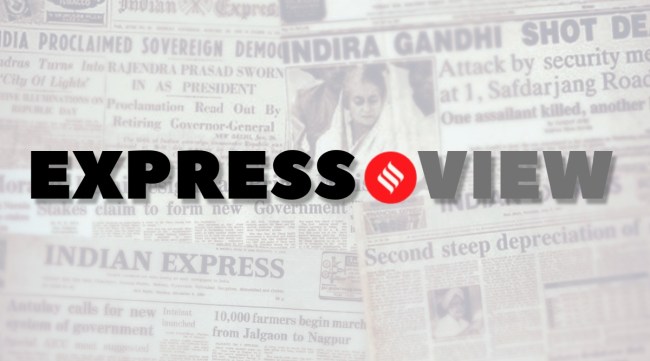Opinion Sheikh Hasina’s visit signalled deepening of India-Bangladesh relationship. In times of regional turmoil, it needs careful nurturing
PM Hasina has done much to deal with terrorism, and to deny a haven to anti-India groups, despite the anti-Bangladeshi rhetoric from the highest political echelons in India. But that doesn't mean that Delhi should take things for granted
 PM Hasina graciously described the India-Bangladesh relationship as “a role model for neighbourhood diplomacy worldwide”.
PM Hasina graciously described the India-Bangladesh relationship as “a role model for neighbourhood diplomacy worldwide”. The deepening of ties between Bangladesh and India comes at a time of increased uncertainty in South Asia. Sri Lanka and Pakistan are reeling from economic and political crises, even as the region as a whole is dealing with the twin shocks of the pandemic and the supply chain problems caused by the conflict in Ukraine. Against this backdrop, the significance of the enhanced economic cooperation and connectivity put in place during Bangladesh Prime Minister Sheikh Hasina’s visit to India from September 5 to 8 cannot be understated. It is of a piece with what is arguably India’s most reliable partnership in the neighbourhood, one that has been nurtured by both sides, especially in the last decade.
On the trade front, both sides have directed officials to begin negotiations on the Comprehensive Economic Partnership Agreement (CEPA) which is long overdue: India is Bangladesh’s second biggest trade partner and its largest export market in Asia. Despite the pandemic, bilateral trade grew at an unprecedented rate of almost 44 per cent from $10.78 billion in 2020-21 to $18.13 billion in 2021-22. On both border management and river waters — two issues on which there have historically been differences between Delhi and Dhaka — significant progress has been made. An MoU has been signed between the Ministry of Jal Shakti and the Bangladesh Ministry of Water Resources on the withdrawal of water from the Kushiyara. The two sides also affirmed that border management is a shared priority and commended the fact that the deaths on the border have greatly reduced. That both countries have agreed to “expedite work to complete all pending developmental works within 150 yards of the Zero Line, including fencing starting with the Tripura sector with the objective of maintaining a tranquil and crime-free border” is welcome. As is the decision to complete defence projects under the Line of Credit umbrella. For all the progress, however, there is still much to be done. The long-pending issue of sharing Teesta waters — a major concern for Dhaka — continues to be unresolved, in no small part due to the stance of the Government of West Bengal. Dhaka has traditionally relied on Beijing for its defence needs. As there is greater trust in the relationship with Delhi, there is every chance that strategic cooperation can keep pace with economic ties.
PM Hasina graciously described the India-Bangladesh relationship as “a role model for neighbourhood diplomacy worldwide”. But such a relationship — for it to stay strong and grow — needs to be carefully nurtured. Hasina has done much to deal with terrorism and extremism, and to deny a haven to anti-India groups. On the other hand, there has been concern in Bangladesh about the CAA and proposed National Register of Citizens in India. The concern is as much about laws as the anti-Bangladeshi rhetoric from the highest political echelons in Delhi. It is a testament to the abiding relationship that such a politics has not upset the applecart with Dhaka. But that doesn’t mean that Delhi should take things for granted.






